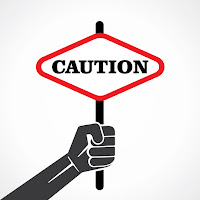 |
|
|
There is a mental health facility in my neighborhood that
houses patients. Non-residents can use
this place for respite during the day.
They are blessed. Social contact
and communal engagement helps promote a sense of belonging in a human. It is one of our basic human needs.
Lately, my thoughts have wondered how long it takes some
mental health patients, without this kind of support, to adjust to loneliness
and isolation. The question arises
because one aspect of said illnesses is poor interpersonal relationships. An inability to get along with others is
frequent and deeply felt by both the mental health patient and those that
belong to their family. Poor
relationships - that in and of itself is not surprising.
Bipolar patients have unexpected mood swings. Depressed consumers rarely want to leave
their beds or homes for social interaction.
Anxious people are always excited about “something” and can either
present as overly aggressive, boisterous or always moving around.
Family members choose one of several solutions:
Avoidance – “Is (Harry) going to be there? I’m not coming. He’s crazy.
He is difficult to talk to and you just never know what he is going to
do or say next.”
Some people choose to not engage at all with moody
people. The constant uncertainty of
their behavior, vocalized intentions and unexpected stories make it difficult
to hear, observe or participate in live while they are around.
 |
|
|
This solution works for the “well” person but does little
for the consumer. Isolation, already
delivered by the consumer’s hand to themselves, now becomes an external
experience too. The loneliness drives
some to commit suicide, use drugs or act out sexually. But, in the self-centered world we live in,
that is the mental health consumer’s problem, not anyone else’s. Right?
Especially since this same person has caused so much harm
and wrecked so much havoc in the family home.
What responsibility does the family have to this person after years and
years of abuse?
Acceptance – This family unit accepts their crazy
cousin and all the drama they bring to life.
Mind you, the mental health consumer (crazy cousin) is totally unaware
of their bizarre nature. In fact,
because people often laugh at what he/she does, the consumer thinks they are
normal. They continue “entertaining”
family members because some attention is better than none.
They accept this loved one, give them food and shelter after
each “binge” of bad behavior that can result in a trip to jail, three days in
the street chasing drugs or any other abnormal disappearance. Eventually, the family might get tired. Some don’t.
Assistance – This family unit tries to assist the
mental health consumer. They invite them
to events, ask them did they take their meds, remind them when they do or say
something inappropriate, and hug them to let them know they are loved and
accepted regardless of their quirkiness.
This kind of support assists a patient’s pursuit towards wellness.
 |
| Author: 3DAgentur |
For those that don’t know they are sick, these families have
interventions to confront the bizarre behavior and ask the loved one to get
help. This kind of support may be
unwelcomed, but it is an act love.
Probably the best thing about this kind of family unit is
communication. They talk to each other
and probably, at some point, have talked to a mental health professional about
their loved one. That makes sense. Just like drug and alcohol addictions are
family diseases, so is a mental health disorder. It is a disease that impacts the family.
Where are you?
Which family unit would you desire to belong to? Which family member are you? One who avoids, accepts/denies a loved one’s
condition? Or, are you in that glorious,
rare group of families that assists your loved one as best you can?
The last option probably happens in healthy family units
versus dysfunctional ones. This also
means a healthy faith community, work environment or social group. We have so much to learn about each
other. Extending grace and love and
mercy towards others is a gift that many are unwilling to give. To those of you that do, thank you. You are truly an example of “living in the
solution of life.”
Be blessed,
M






